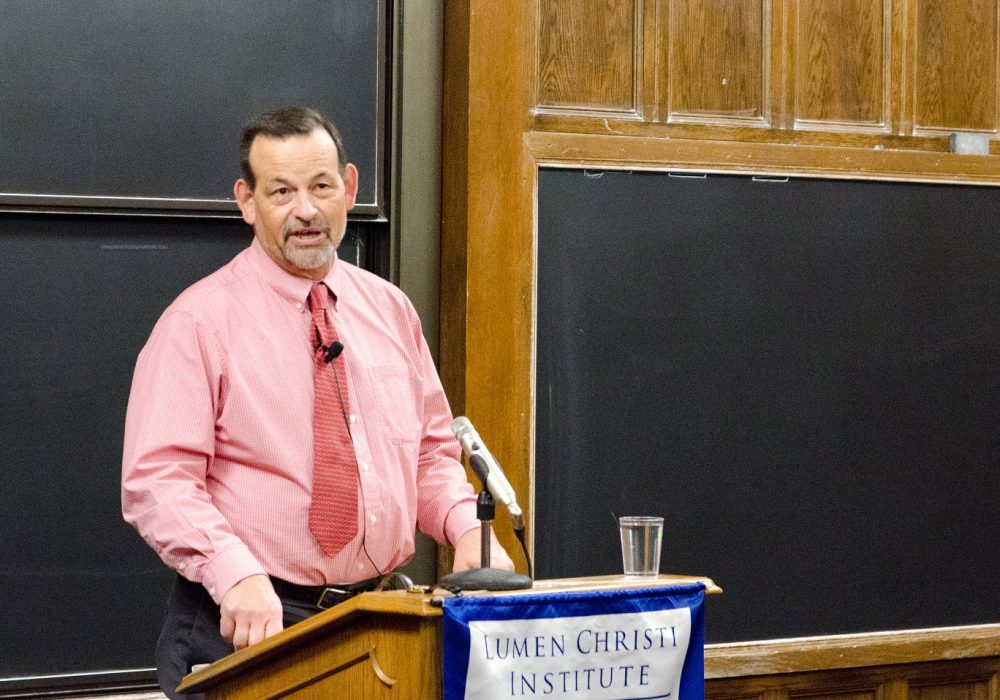Free and open to the public. Cosponsored by the Department of Philosophy.
Plato found philosophy in some of the same erotic anxieties that permeate contemporary life, and even explored themes central to Catholic conceptions of sexuality. This lecture will be based on central themes from Plato’s Symposium, drawing on David O’Connor’s Plato’s Bedroom: Ancient Wisdom and Modern Love.
ABOUT Plato’s Bedroom
Plato’s Bedroom is a book for people who want to be better at falling in love and being in love, with all the ecstasies and dangers erotic life can bring. It is also an inviting book for readers who are intellectually playful and up for a challenge, written with verve, and full of stories thoughtful persons will find to be mirrors of their own erotic selves. Drawing on Greek myth, Plato, Shakespeare, and a wide range of modern literature and movies, the book gets Aphrodite talking with the young lovers in A Midsummer Night’s Dream, and lets us listen in on Woody Allen arguing with Othello. The author’s account of how we seek, fear, avoid, and sometimes destroy love, is astonishingly fresh and engaging.
Throughout its pages, one hears the voice of an engaging teacher and the conversation of a wise friend. In short, this is a work of practical philosophy, not scholarship, though only a scholar could have written it. It invites readers into a deep appreciation of timeless ancient wisdom through reflecting on their own powers for love and their susceptibility to desire.
A distinctive feature of the book is the interweaving of two guiding threads in Plato’s conception of erotic experience: androgyny, that is, the integration of masculine and feminine; and creativity, in both a sexual and a spiritual sense. These two aspects of Plato’s erotic vision, androgyny and creativity, lead readers to a sense of grateful wonder and sacred awe at our own erotic powers. Our natural experience of romantic love, articulated so well by Plato, points toward a more explicitly religious interpretation of love’s commitments and pleasures. The author brings out some surprising and delightful connections between Plato’s pagan eroticism and the Adam and Eve story, Jesus’s teaching in the Gospels, and Catholic views about marriage.
Plato’s Bedroom will be the first book to tap into the perennial curiosity about love and sex through the enduring interest of the general reader in philosophical reflection on contemporary culture.
To view photos of O’Connor’s lecture, visit Lumen Christi’s Facebook page.
You can subscribe to the Lumen Christi Institute Podcast via our Soundcloud page, iTunes channel, Stitcher, TuneIn, ListenNotes, Podbean, Pocket Casts, and Google Play Music.

